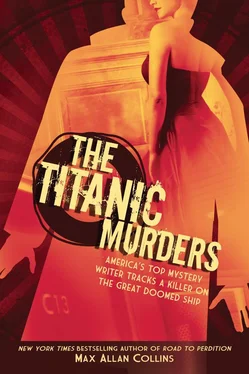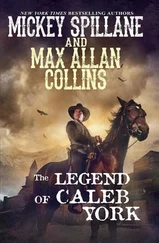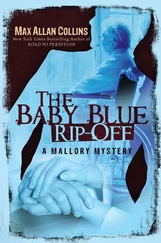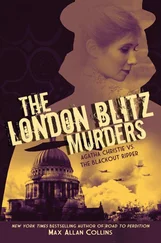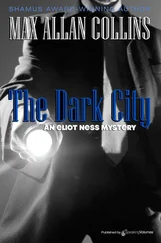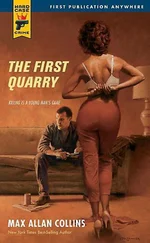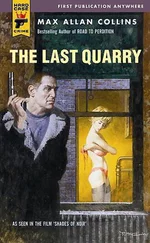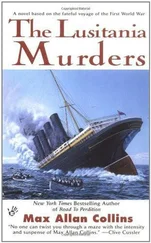Max Collins - The Titanic Murders
Здесь есть возможность читать онлайн «Max Collins - The Titanic Murders» весь текст электронной книги совершенно бесплатно (целиком полную версию без сокращений). В некоторых случаях можно слушать аудио, скачать через торрент в формате fb2 и присутствует краткое содержание. Жанр: Исторический детектив, на английском языке. Описание произведения, (предисловие) а так же отзывы посетителей доступны на портале библиотеки ЛибКат.
- Название:The Titanic Murders
- Автор:
- Жанр:
- Год:неизвестен
- ISBN:нет данных
- Рейтинг книги:5 / 5. Голосов: 1
-
Избранное:Добавить в избранное
- Отзывы:
-
Ваша оценка:
- 100
- 1
- 2
- 3
- 4
- 5
The Titanic Murders: краткое содержание, описание и аннотация
Предлагаем к чтению аннотацию, описание, краткое содержание или предисловие (зависит от того, что написал сам автор книги «The Titanic Murders»). Если вы не нашли необходимую информацию о книге — напишите в комментариях, мы постараемся отыскать её.
The Titanic Murders — читать онлайн бесплатно полную книгу (весь текст) целиком
Ниже представлен текст книги, разбитый по страницам. Система сохранения места последней прочитанной страницы, позволяет с удобством читать онлайн бесплатно книгу «The Titanic Murders», без необходимости каждый раз заново искать на чём Вы остановились. Поставьте закладку, и сможете в любой момент перейти на страницу, на которой закончили чтение.
Интервал:
Закладка:
“I don’t know you, yet. Don’t trust you, yet. This is big money. Dangerous, too.”
“Why’s it dangerous?”
“I signed papers not to tell. I took money.”
“What for? Who from, damnit!”
“… I can’t say.”
I held the phone away from my face and glared at it; then I brought it back to my ear and mouth and said tightly, “Then why are you bothering me?”
Silence on the line, staticky silence.
“… They thought the galley area would be a good place to look. For the kind of things easy to take, still in nice shape… dishes, silverware, pots, pans… you know what a White Star dish from the Titanic would be worth?”
Had my anonymous caller been on a salvage expedition to the Titanic, with modern-day pirates?
“I’m sure a lot,” I said.
“They had huge refrigeration on that ship. Very modern for back then, condenser-coil water system. Separate cold rooms for different perishables, you know, meat, vegetables, wine and champagne… and on the orlop deck, a cold-storage cargo hold, for other things… away from the food.”
I didn’t know what an orlop deck was (it’s the lowest deck of a ship with multidecks, in this case right above the Titanic ’s three immense propellers) but I did have a question. It’s the kind of question a mystery writer would ask.
“This cold-storage hold-would that be where they’d put somebody who died?”
There was a nod in his voice. “That ship had everything-swimming pool, squash court, barbershop, Turkish bath, operating room, everything-except a morgue.”
The staticky silence seemed to need filling, before he would go on; so I said, “I see.”
“You’re right-the cold cargo hold, in through number-five hatch… that’s where we found them.”
“… Bodies?”
“We didn’t know that’s what they were at first. They were just big canvas bags, sewn shut… beautifully preserved. The submersible brought the bags up, we hauled them out on deck, and we cut one of them open… the stench was like a sewer….”
“I don’t need details.”
“Have you read Poe?”
“Of course I’ve read Poe.”
“Have you read the story of the sick man who is hypnotized?”
“Yeah, and I saw the movie.” He was referring to “The Facts in the Case of M. Valdemar.”
“Then you remember the hypnotized man, he finally collapses in an oozing pile of putrescence, melting from the bones-”
“Okay, okay,” I said. “I may want to eat again someday.”
“It’s not what National Geographic wants for a Discovery Channel special, I can tell you that much. We never opened the other bag, but there was a body in it, all right.”
Staticky silence, as if some distant telegraph message were going unanswered.
I asked, “And no one knows of this?”
“Only those on deck that day.”
“On what deck? What ship, what expedition? You sound French.”
“Oh? I thought my English was very good.”
“Berlitz would hire you in a heartbeat. What about the bodies?”
“We buried them at sea. We swore not to talk of it, we were paid handsomely… I’ll tell you one thing about the body in the bag, the bag we opened?”
“Yes?”
“Its skull had been crushed. Caved in.”
“Couldn’t that have happened when the ship went down?”
“I don’t think so. I think this was death by violence, man’s violence, not nature. Murder. Isn’t that what you write about?”
“I do, but I’m not really a nonfiction writer. I mean, I research real, unsolved crimes, but then I write a fictional work around the facts I uncover.”
“That’s why I called you. I can’t risk a true treatment of this, but if you could devise a fiction story around it…”
“I don’t know. You’re not giving me much to go on… I’m afraid a nonfiction treatment would be where the interest, and the money, is. Hey, come on, pal-what is your name?”
“Are you interested in my story?”
“Yeah, I’m interested. Mildly. But interested.”
And he hung up.
Perhaps I hadn’t shown sufficient enthusiasm, and if you’d had as many crank calls, relating to your work, as I’ve had, you’d have been at least as skeptical as I was. Still, the notion of a murder-of two murders-on the Titanic, before she went down… that was intriguing.
And it did tap into my very narrow, specific Titanic interest, an interest I’d carried since childhood….
Among the Titanic ’s famous passengers, hobnobbing with John Jacob Astor, Molly Brown, Ben Guggenheim and the rest, was one of the most celebrated and popular American mystery writers of his day, Jacques Futrelle, creator of Professor S.F.X. Van Dusen. Futrelle’s creation, also known as the Thinking Machine, was a cerebral sleuth whose exaggerated cranium housed a formidable brain, a dabbler in detection who refused payment for his crime solving, displaying a cold, imperious attitude (and devotion to pure logic) that made Sherlock Holmes seem warm and fuzzy.
Despite the French ring of his name, Futrelle was an American journalist turned fiction writer. His tales of so-called “Impossible Mystery” were a major influence on Agatha Christie; there is much of Professor Van Dusen in her Hercule Poirot and his celebrated “little gray cells.” The Thinking Machine’s first case remains his most famous: “The Problem of Cell 13,” in which the detective, on a bet, escapes from a death-row cell. This tale remains one of the two or three most reprinted short stories in mystery fiction, and is the first detective story I remember reading.
And the brief biography of Futrelle included in the preface to the Scholastic Books’ collection of “Thinking Machine” stories was where I first heard about the Titanic, and the sad news that Futrelle-and a number of unpublished Professor Van Dusen stories-went down with the ship.
I’d always been interested in Futrelle, and loved his stories, but little of his work was in print and coming by editions of his handful of novels was difficult. Consequently I hadn’t given him much thought in perhaps twenty years when the Robert Ballard-stirred revival of Titanic interest sent journalists scurrying to talk to survivors of the tragedy, and even relatives. A wire-service interview with Futrelle’s daughter Virginia made me recall how, as a boy, I’d enjoyed Jacques Futrelle’s fiction.
Now, ironically, from a single wire-service story, I knew more about his grown daughter than I did about Futrelle himself; and she’d had quite a life of her own.
Born in 1897, Virginia had been an operatic prima donna featured in musical revues, frequently sharing the bill with young Cary Grant’s acrobatic act at the Hippodrome in New York. She toured Europe, consorted with show business royalty (she was Barbara Stanwyck’s bridesmaid) and eventually married Charles F. Raymond, an eminent New York theatrical manager, living with him in London and, after World War II, in Johannesburg, South Africa. Later in life she worked in broadcasting, in production, winding up back in Massachusetts, where she’d grown up.
Virginia Futrelle Raymond, interviewed about her father and his death on the Titanic, passed along to interviewers a number of fascinating stories told to her by her late mother, May, who had survived the disaster. I noted that Mrs. Raymond, now a widow, lived in Scituate, Massachusetts.
And since I had a book tour coming up that would take me through Boston-twenty-five miles from Scituate-I made my own impulsive, out-of-the-blue telephone call to the daughter of Jacques Futrelle.
“I’m a fan of your father’s work,” I told her, “and I’d consider it a great honor if you’d consent to meet with me.”
Читать дальшеИнтервал:
Закладка:
Похожие книги на «The Titanic Murders»
Представляем Вашему вниманию похожие книги на «The Titanic Murders» списком для выбора. Мы отобрали схожую по названию и смыслу литературу в надежде предоставить читателям больше вариантов отыскать новые, интересные, ещё непрочитанные произведения.
Обсуждение, отзывы о книге «The Titanic Murders» и просто собственные мнения читателей. Оставьте ваши комментарии, напишите, что Вы думаете о произведении, его смысле или главных героях. Укажите что конкретно понравилось, а что нет, и почему Вы так считаете.
